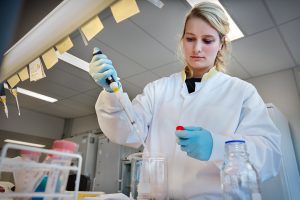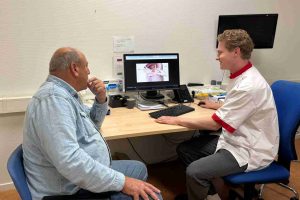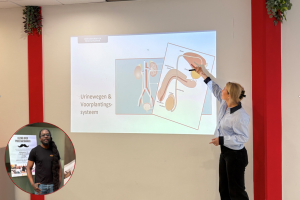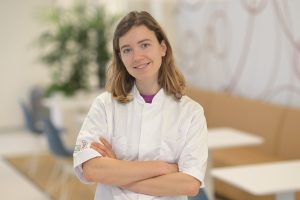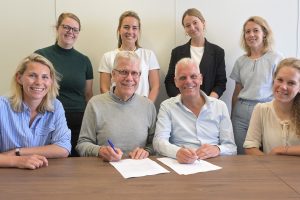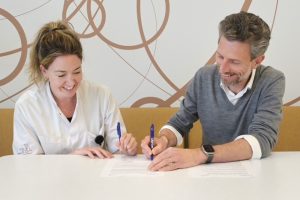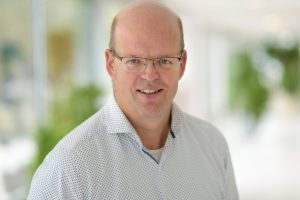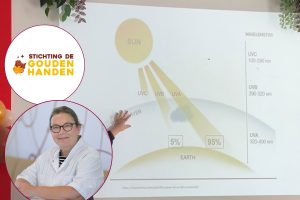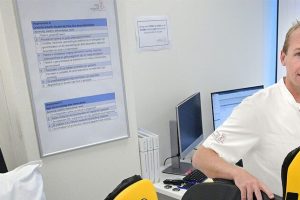This week marked the official opening of the new breast cancer diagnostic department at the NKI Center for Early Cancer Diagnostics (CVV). This expansion is an important milestone for the Center’s mission: to promote new advancements in early cancer detection and implement them in practice as quickly as possible. The official opening was conducted by screening patient and artist Aysha de Groot, also known as “Meis.” She shared her powerful personal story with attendees and performed her self-written song “Rond,” in which she conveyed her personal battle with cancer.
Breast Cancer Diagnostics
Previously, all breast cancer diagnostics were conducted in the main building of NKI. With the opening of the new department at the CVV, patient flows are now separated: clients who have not yet received a cancer diagnosis are seen at the CVV, while patients with a confirmed diagnosis are seen in the main building. This separation brings greater peace for both groups and sharpens the CVV’s mission focus.
Caroline Drukker, breast surgeon, explains: “At the CVV, we focus on improving screening, early diagnosis, and prevention together with other tumor specialties. This allows for cross-pollination, learning from each other, and collaboration—both in research and in implementing new techniques and identifying high-risk clients. Our goal is to identify every woman at increased risk of breast cancer and provide her with an accurate risk assessment and screening advice. This way, she can receive the monitoring and guidance she needs at the right times and in the right place. In the coming years, we will dedicate everything at the CVV to achieve this goal.”
Opening Remarks by Screening Patient
Screening patient Aysha de Groot gave an inspiring opening address. When Aysha lost her mother to stomach cancer at a young age, she discovered that she also carries a hereditary risk. This puts her at higher risk for several types of cancer, and she chose to undergo a preventive stomach removal at the NKI. During her treatment journey, she wrote several powerful songs, which she released on the album “Zwart/Wit” (“Black/White”). She now visits the Screening Clinic annually, which is now part of the NKI Early Diagnosis Center.
Aysha shared: “Early detection allowed me to slowly rebuild my life after my surgery. Five years ago, I was told that my breasts would also need to be removed eventually to prevent breast cancer.” A year ago, she learned that this is no longer necessary and that regular monitoring at AVL is sufficient: advancements have been so rapid that Aysha can keep her breasts. “This means I can stay myself, without losing more parts of who I am. And I don’t have to focus on being a patient so often—maybe just one day a year I’m a ‘patient,’ and the rest of the days, I’m a ‘person.’ I don’t have to survive; I can live. I am very grateful for this, and that’s why the work you do in this Center is so important.”
The Importance of Early Detection
The NKI Center for Early Diagnostics plays a key role in detecting common cancers. The Center’s aim is to develop and implement new tests and methods in the field of early detection. By focusing on early detection, we can make a greater impact. When cancer is discovered at an early stage, it is more treatable, and survival rates improve. This also reduces the impact on patients’ quality of life and alleviates the increasing pressure on healthcare. Additionally, the CVV is dedicated to better identifying individuals at increased cancer risk, enabling more targeted testing and screening—saving lives in the process.

